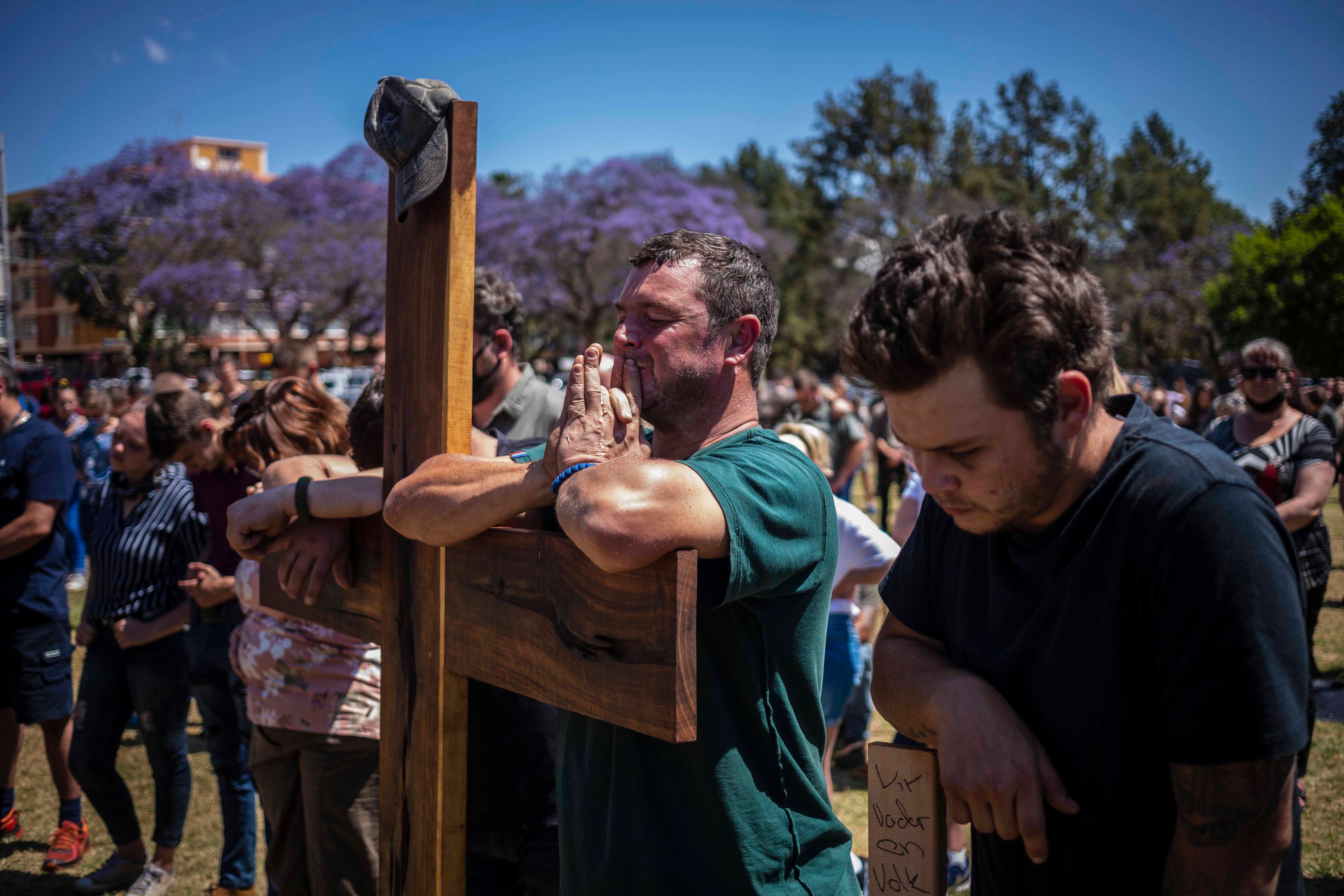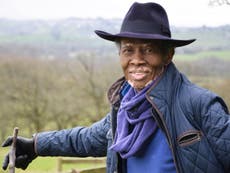Why the killing of white farmer Brendin Horner matters in South Africa’s racialised political landscape
In a country where an average of 58 people are murdered every day, the death of Brendin Horner might easily have gone relatively unnoticed. But a few days after the killing, something unusual happened in the nearby town of Senekal


Your support helps us to tell the story
From reproductive rights to climate change to Big Tech, The Independent is on the ground when the story is developing. Whether it's investigating the financials of Elon Musk's pro-Trump PAC or producing our latest documentary, 'The A Word', which shines a light on the American women fighting for reproductive rights, we know how important it is to parse out the facts from the messaging.
At such a critical moment in US history, we need reporters on the ground. Your donation allows us to keep sending journalists to speak to both sides of the story.
The Independent is trusted by Americans across the entire political spectrum. And unlike many other quality news outlets, we choose not to lock Americans out of our reporting and analysis with paywalls. We believe quality journalism should be available to everyone, paid for by those who can afford it.
Your support makes all the difference.Even by South Africa’s often violent standards, it was a brutal killing.
Two weeks ago, the body of 21-year-old Brendin Horner was discovered, tied to a pole, with a rope around his neck, and a bloodstained knife at his feet. There were indications that he had been tortured.
Brendin had worked as a manager at a cattle farm in the Free State, on the high plains in the centre of a country wrestling with a deepening economic crisis, increasingly inflammatory and racialised political rhetoric, and growing fears that the nation’s hard-won democratic institutions – not least the police and the justice system – have been gravely weakened by years of corruption and mismanagement.
To their credit, the local police quickly tracked down a bloodstained vehicle, and arrested two men – 32-year-old Sekwetje Mhlamba and 44-year-old Sekola Matlaletsa – suspected stock thieves, who were allegedly found in possession of bloodstained clothes and shoes.
In a country where 58 people are murdered – on average – every day, the death of Brendin Horner might easily have generated a few brief headlines and some angry social media posts from South Africa’s overwhelmingly white commercial farming community, before the story was overtaken, and side-lined, by some new outrage or scandal.
But a few days after the killing, on 6 October, something unusual happened in the nearby town of Senekal.
The two suspected killers were due to appear at the local magistrate’s court. More than a thousand farmers had gathered on the street outside to protest against the men. Some held banners or wore T-shirts reading “Stop Farm Murders” and “Enough is Enough.” The frustration was palpable.
Many farmers maintain they are at particular risk of violent attacks in South Africa and feel the police and courts are not doing anything like enough to protect them. Some suspect there may be a political plot behind this – a surreptitious “Zimbabwe-style” attempt to push white farmers off their land. Far-right groups here, and abroad – their messages amplified by some world leaders – even claim they’re victims of a “white genocide”.
Suddenly, as if the group’s collective patience had snapped, a number of white farmers broke away from the crowd and burst into the courthouse itself, perhaps seeking some sort of vigilante justice. Shots were fired. A police car was set on fire. And what might have been a relatively small incident in a quiet farming town was transformed into a new flashpoint in South Africa’s increasingly fractious and racialised political landscape.
It was left to South Africa’s president – a man who might easily be dubbed the nation’s “soother-in-chief” – to attempt to calm the situation.
In a carefully balanced statement, Cyril Ramaphosa sought to put the murder of Brendin Horner – “an appalling act of cruelty” – in the broader context of a nation consumed by violent crime, where “the majority of victims … are black and poor.”
Ramaphosa addressed, head-on, the claims that white farmers are disproportionately targeted by criminals – a persistent claim that is not backed up by statistics that show whites, who own approximately three-quarters of commercial farms, also account for about three-quarters of the victims of farm attacks.
“Contrary to the irresponsible claims of some lobby groups, killings on farms are not ethnic cleansing. They are not genocidal ... The claim that violent crime on farms is part of an orchestrated campaign by blacks to drive white farmers off their land is simply not borne out by fact,” he said.
So where does this leave South Africa, as it struggles to extricate itself from the corruption and economic slump that flourished during what Ramaphosa himself has condemned as “nine lost years” under the misrule of his predecessor, Jacob Zuma?
The good news is that, for all the talk of “white genocide” on one extreme, and of “fighters attack!” on the other, South Africa remains an overwhelmingly tolerant society, preoccupied by its current economic challenges and reluctant to be drawn into the culture wars of populist politicians.
The bad news is that – despite recent progress in tackling high-level corruption – the country’s dominant party, the governing ANC, is at war with itself and appears, to many, incapable of following through on the sort of radical economic reforms necessary to revive the economy, tackle deepening inequality, lure in foreign investment, and steer the nation away from a seemingly imminent debt crisis.
In other words, the conditions that contributed to the violence in Senekal seem likely to persist, and perhaps worsen in the years ahead.
Andrew Harding is the BBC’s Africa correspondent. His new book, These Are Not Gentle People, follows a different farm murder investigation in the Free State. It is also the subject of Blood Lands – a BBC Radio 4 series and podcast.


Join our commenting forum
Join thought-provoking conversations, follow other Independent readers and see their replies
Comments